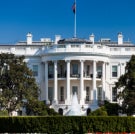Seeing the Online Safety Act as a “job done” would be a “disaster”, a bereaved father has said as he called on the next government to commit to updating legislation to tackle harms affecting children.
Ian Russell, whose 14-year-old daughter Molly took her own life, said bold measures are needed to reassure parents of “real change” when it comes to internet safety and their children.
In 2022, a coroner ruled schoolgirl Molly, from Harrow, north-west London, died from “an act of self-harm while suffering from depression and the negative effects of online content” in November 2017.
The Online Safety Act passed into law in October, and regulator Ofcom is working on codes of practice to help it enforce the rules, although they will not begin to take effect until next year.
The legislation requires social media companies to curb the spread of illegal content on their platforms and protect children from seeing potentially harmful material, with large fines among the potential penalties for those who breach the new rules.
But Mr Russell said while the Act has laid “really important” foundations, a new government will need to work out how to “keep on top” of developments in the fast-changing world of tech.
The Molly Rose Foundation – the suicide prevention charity set up in his daughter’s memory – has published a five-point plan which it said would build on regulation and fast-track “much-needed” change.
It would just be a disaster if the next government starts to regard the Online Safety Act as a job done. This isn’t finished, they need to complete the work and need to work out how to keep on top of it
Mr Russell told the PA news agency it would be “wrong to forget about the Online Safety Act, or to think of it as a piece of legislation that only hit the statute books towards the end of 2023 and so it’s done”.
He added: “It’s not done because it’s so new, it’s not done because it will need revising, it’s not done because tech moves at such a pace that, even if we were to catch up in terms of legislation and regulation, tech would have moved on and we’d have to adapt it to catch up with tech again.
“So this is a constantly evolving thing and it would just be a disaster if the next government starts to regard the Online Safety Act as a job done. This isn’t finished, they need to complete the work and need to work out how to keep on top of it.”
He said it must be made clear to tech firms that “the cost of entry to the UK market is children’s safety” as he called for a “fundamental reset of the relationship” between such companies and children.
The plan laid out by the foundation includes calling for tech companies to have an overarching duty under the Act, and a requirement that the regulator focuses on measurable harm reduction – with Mr Russell giving an example of annual surveys to track the amount of harm found online and how individual tech platforms’ algorithmic systems promote harmful content.
It also calls for tech giants to have a legal duty to report on exposure to online harms in their corporate accounts, a one-off harm reduction windfall tax, a statutory code for app stores and operating systems leading to “high-quality, well-designed age assurance and parental controls on children’s devices”, and investment in education and mental health support.
The foundation does not support calls for phone or social media bans, saying these would “risk a slew of unintendedconsequences and may cause more harm than good”.
Mr Russell said: “Political parties should commit to bold measures that can reassure parents real change is on the way.
“Regulation is evidently the best solution to a complex issue, not bans or restrictions that would punish children for the failure of Big Tech.
“Politicians should commit to transform children’s lives with a new Online Safety Act and a set of ambitious measures to take on Big Tech’s harmful business model.”
Source: independent.co.uk



